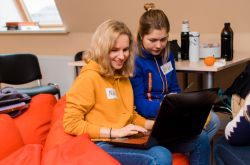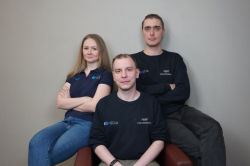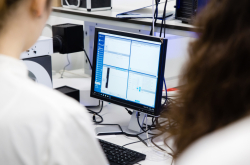Today, AI is widely used to search for information, write code and text, and create advertising and design material; but it can be helpful in business, too. While AI technologies hold great potential for industrial application, there is no common tech stack in Russia to facilitate the development of such platforms; neither are there any contractors who could take on such tasks.
To boost workplace effectiveness, ITMO and the company Tatneft have developed the Digital Expert Council – a multi-agent system based on large language models (LLMs).
The service takes form of a dialog box in which virtual experts provide information on various subjects: oil extraction, IT, mathematics, physics, and more. Image courtesy of the developers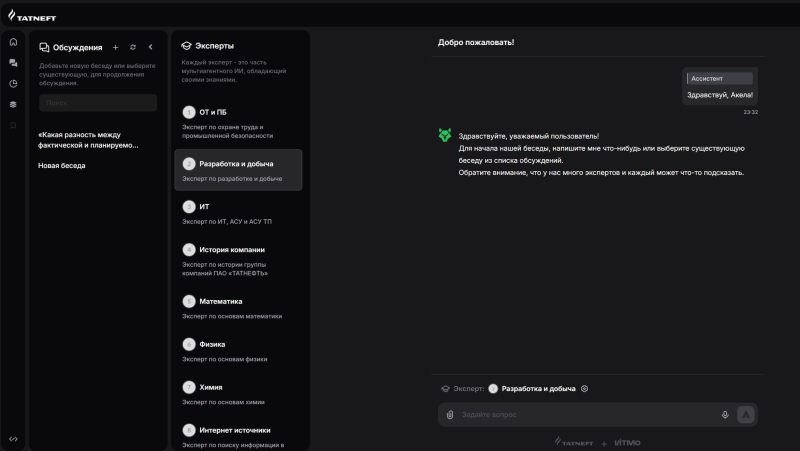
At the moment, the program is capable of completing various tasks: simplifying routine processes (e.g. familiarizing staff with safety regulations and gauging the viability of various procedures during technical works); analyzing text and graphical data (e.g. responding to questions based on the company’s historical database); providing assistance (e.g. finding information needed to assess the effectiveness of proposed solutions) and management (e.g. assigning tasks to staff and monitoring their completion).
The AI assistant is trained on the company’s internal knowledge from subject-specific areas, which means it possesses much deeper knowledge than basic LLMs that are available to regular users. Eventually, the system may replace staff in tackling routine tasks, allowing specialists to focus on less trivial activities.
To this purpose, the developers trained the model using a legal database containing various regulations, decrees, and the company’s internal rules, as well as expertise acquired by Tatneft in various subject areas over more than 70 years of operation: scientific inventions, articles, studies, and reports. As a result, Digital Expert Council can act as a specialist in drilling, workplace safety, IT, mathematics, physics, and even history.
Specialists from ITMO’s Research Center “Strong AI in Industry” are involved in the technical side of the equation: they develop the software and train the model using the latest versions of an entire ensemble of open-source language models: Llama, Qwen, and Mistral.
“At ITMO, our task is to develop tools for working with LLMs and create our own open-source library. You can only test the relevance of such a tool set through a large-scale project in which a business will provide feedback of practical value. For ITMO, the creation of such a platform is a successful case that can test our strategic ideas. Besides, this product will greatly benefit the company and help them identify the optimal development trajectories in the mid-to-short-term perspective, especially when it comes to assessing the development of new [oil and gas] deposits,” says Denis Nasonov, one of the platform’s developers and a senior researcher at the Research Center “Strong AI in Industry.”
Denis Nasonov. Photo by Dmitry Grigoryev / ITMO.NEWS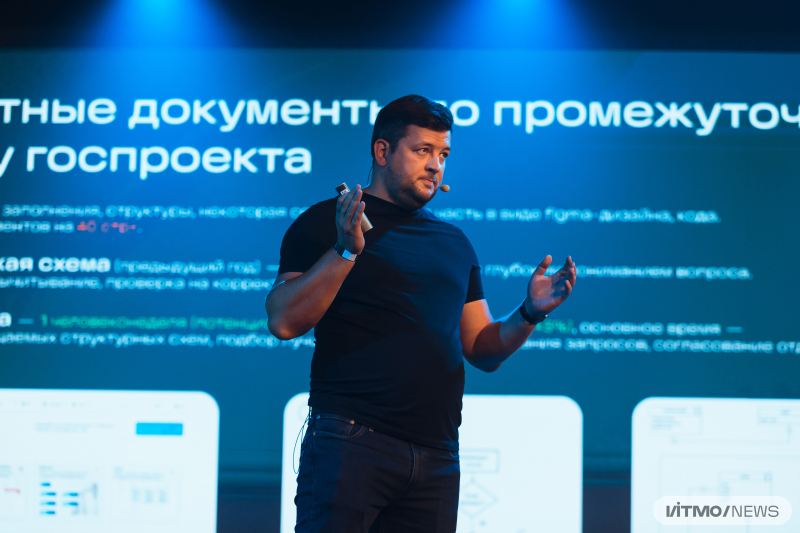
The system is currently in the prototype stage and being tested by some 60 staff members of Tatneft. Its performance is monitored by the company’s experts. The main hurdle for the system’s large-scale integration is the need for access to massive computational resources. The developers are counting on a technological leap that would make the platform available to thousands of staff.
The developers also plan to digitize all of the company’s knowledge and sort it within 50 subject areas. By the end of 2026, they expect to launch the platform for select departments of Tatneft. In the future, this solution should boost employee performance and accelerate business processes within the company.



